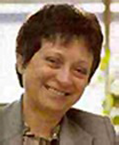Changing Times
Download the WEA commentaries issue ›
As many of you know, I am one of the founding members of the World Economics Association. Edward Fullbrook approached me in 2010 and asked me whether I wanted to collaborate with his project and help to bring to reality his vision for an economics association which is inclusive, pluralist and committed to openness. The idea attracted me and I set to work on a new approach to open peer review system. I had already done some critical work on peer review and I loved the idea of developing a concrete system. That how it all started for me.
Once we launched it in May 2011 there was a lot of excitement as the number of members kept going up. In the actual running of the activities I took responsibility for the organization of the Conference Programme while being available also for support in a variety of other areas. So far we had nine conferences. In the programme I had at various times, excellent support from Ilker Aslan and from Malgorzata Derienowska. Jake McMurchie’s technical support has been fantastic and made a tremendous difference from our earlier lower tech attempts at organization. I am also very pleased to have been able to develop a collaboration with College Publications for the production of books from conferences. The first two – on the Economics Curriculum with Maria Alejandra Madi and Jack Reardon as editors, and on Piketty’s Capital edited by Edward Fullbrook and Jamie Morgan – are now out.
It has been a great pleasure and privilege for me to develop activities which I believe in and to work with like minded, progressive colleagues from all over the world as well as with WEA closer colleagues Edward Fullbrook, Vicky Harris and Stuart Birks. However, it is time to move on and devote full attention to other aspects of my life. I will always be interested in the WEA activities and will always be available for background support and consultation. This is the right time for somebody else to take over the organization of the WEA conferences. Luckily we have a very competent, committed, enthusiastic and pleasant person in Maria Alejandra Madi from the University of Campinos in Brazil. Maria is already contributing to the WEA Pedagogy Blog (weapedagogy.wordpress.com) where she gives support for teaching and learning. She has hands-on experience of WEA conferences having organized two: the ‘The economics curriculum: towards a radical reformation’ and ‘Is a more inclusive and sustainable development possible in Brazil?’. I will be available for her for a while after the hand-over to secure a smooth transition.
So, what will I do? Well, here are some of my plans and you can see that boredom is unlikely to hit me any time soon. I have three research project on the go. The first one – with Marion Frenz of Birkbeck University of London and Maria Savona of the Science Policy Research Unit, University of Sussex – is on ‘Absorptive Capacity in Innovation Performance’. Our theoretical framework will be backed by empirics: some 12 indicators will be estimated for several countries over a 20 years period. We are currently also planning a parallel firm level study. The second project is a solo one. It has arisen from a commission by the European Trade Union Institute (ETUI) in Bruxelles. It looks at ‘The Boundaries of the Firm from the point of view of labour as stakeholder’. The third one – with Giovanni Balcet from the University of Turin – looks at ‘Transnational companies’ strategies of organizational and geographical fragmentation and their impact on labour. Looking at FIAT’s history’.
There are also some more personal activities. I am finishing a memoir of my childhood in the Aspromonte mountain of Calabria and its impact on my later life. It includes my mother’s recipes of Calabrian food. It is healthy Mediterranean food, mainly vegetables. And last, but certainly not least, I currently devote – with great pleasure – two to three afternoons a week to my grandchildren Penelope (5 years) and Daniel (3+ years). I intend to continue my duties as ‘nonna’ (grandmother).
[Editor’s note: from its inception, Grazia has made a very significant contribution to the World Economics Association. Her foresight and commitment has been a major factor in its success to date. We all owe her a debt of gratitude and wish her well in her future endeavours.]
From: p.12 of World Economics Association Newsletter 4(6), December 2014
https://www.worldeconomicsassociation.org/files/Issue4-6.pdf

Great Madam. Feel energy to read your’s views.
Here in Israel our Hebrew for a grandma (familiar form) is called a nana and not a nonna. Interesting language, the formal word is “safta”.
Madam Great writing.
Dear Grazia, Many thanks for all you have done for WEA and beyond. You have made a huge contribution in the quest to restore sanity to the economics research agenda and the economics curriculum.
Dear Peter
many thanks for your kind words. Throughout the years – not all easy ones – the encouragement of yourself and other like-minded people has been and still is a great source of strength. I see positive signs ahead for our economies and profession.
My best wishes
Grazia
Dear Vinay
gives me energy to read your kind comment.
Best wishes
Grazia
Dear David
nonna is shorter and easier to pronounce for a child than the corresponding grandma in english;,(in fact almost the only word I can think of in this situation as italian tends to have long words). I was delighted to see that my grandchildren – whose main exposure to language has been english – have been able to call me from very early age.
Grazia
Dear Sayeed
many thanks for your comment
Best wishes
Grazia